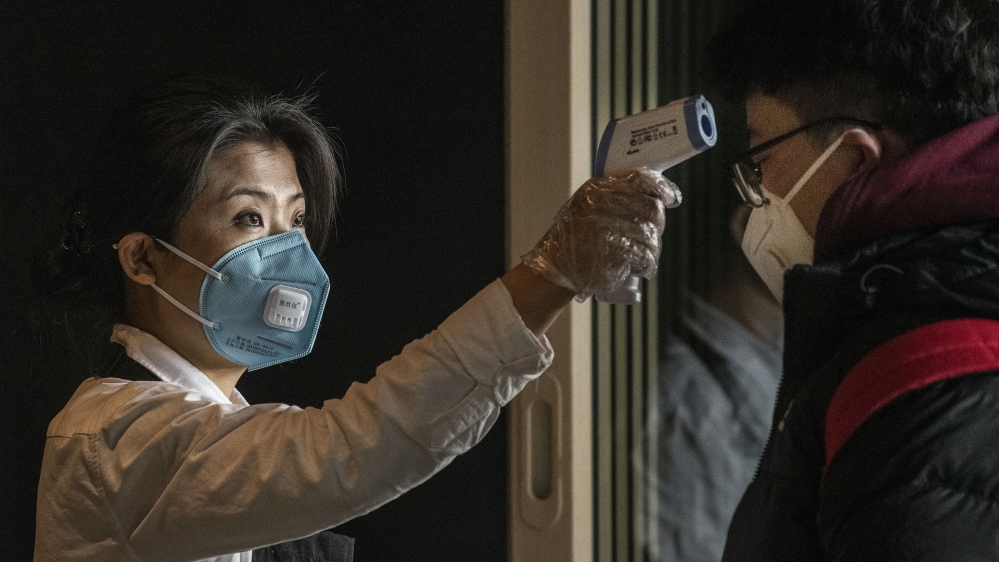London: Driving to work at his factory to the west of London last week, designer Steve Brooks had coronavirus on his mind. He was thinking about making a new gadget he should make that would let him open a door without touching the handle.
“Everyone has to use their little finger or find the bit of the door that nobody’s touched,” said the designer and owner of a company which makes office furniture. He went on thinking about any sort of gadget that would help him achieve his aim. So he made a hook to do the job and started using it to prevent an attack of coronavirus.
Brooks named the new gadget ‘hygienehook’. It is small enough to fit in a pocket and made from a non-porous material, which makes it easy to clean. It is one of hundreds of new gadgets dreamt up in recent days and weeks to help prevent people from spreading the coronavirus.
Brooks worked on the new gadget quickly. Less than a week after his first design, four different models of the hook went on sale this week, selling at just under 15 pounds ($18.60) each. He is donating one hook for everyone he sells.
Now Brooks is turning his creative eye to another gadget along similar lines. “We’ve already had a request from the National Health Service in Wales about designing something for pushing a door,” he informed.
From furniture makers to AI software developers, companies around the world are adapting existing products or inventing new gadgets to help fight the pandemic coronavirus or just make life easier for those working from home, in hospitals or stuck in quarantine.
The flurry of innovation comes as companies from Ford and Airbus to luxury goods giant LVMH retool plants to make critical equipment like hand sanitisers, ventilators and masks in their efforts to prevent the spread of coronavirus. But then it is not the big companies that are producing new gadgets alone.
A crucial difference now, though, is that 3D printing and high-tech software mean devices can be produced faster than ever by companies big and small.
“There is definitely a ton of people with 3D resources very willing to help,” said MacKenzie Brown, the founder of California-based product design company. Two weeks ago, his company launched a month-long contest for new gadgets for navigating the new coronavirus world. About 65 entries have so far poured in, including gadgets like a wrist-mounted disinfectant sprayer, half gloves for knuckle-pushing of buttons and a device that lets you open car doors without touching the handle, aimed at cab users.
Startups are retooling their technology.
In Seattle, brothers Joseph and Matthew Toles and their friend Justin Ith, who own a young company called ‘Slightly Robot’, developed another new gadget to the fight coronavirus. It is a wristband aimed at reducing compulsive skin-picking nail-biting, and hair-pulling. When Seattle reported its first fatalities from the coronavirus last month, they adapted the design to create a new smartband, the ‘Immutouch’, which buzzes when the wearer’s hand goes near their face.
“We had the algorithm, we had the software and the hardware. We’ve repurposed the new gadget for face-touching,” Matthew Toles said in an interview. “We made 350 of these new gadgets in a week and that is how fast we can continue to make such devices.”
Scylla, a US-based AI company that makes gun detection systems for schools and casinos, turned its sights on the virus when China, the original epicentre of the outbreak, reported its first cases three months ago.
It re-deployed its AI analytics software to measure the temperature of a person’s forehead, sending out an alert if it detects a fever. Taking images from a thermal camera, the software can be used in public buildings like hospitals and airports, and corporate offices. An official of the company said that a South American nation has placed an order for 5,000 licences of Scylla’s system for its public buildings and transport system, but declined to name the country.
“There’s no question that inventors will be coming up with hundreds, if not thousands, of new ideas and new gadgets,” said Kane Kramer, inventor and co-founder of the British Inventor’s Society. He first conceived the idea of downloading music and data in the late 1970s. “Everyone’s downed tools and are only picking them up to fight the coronavirus. It’s a global war,” added Kramer.
Agencies
